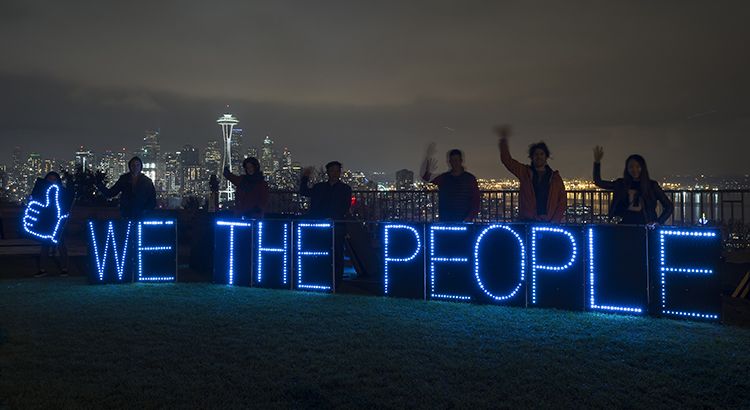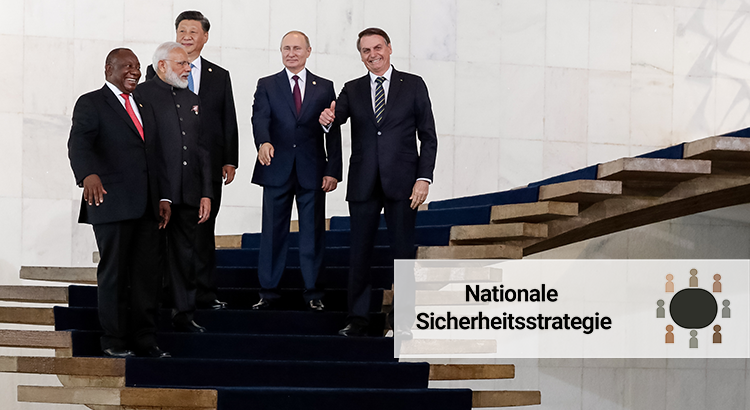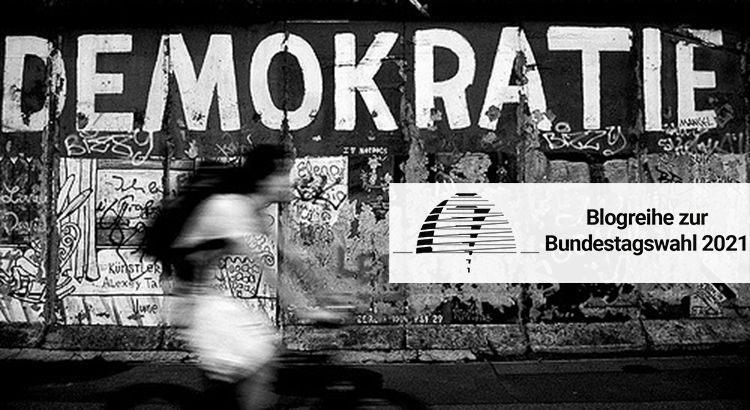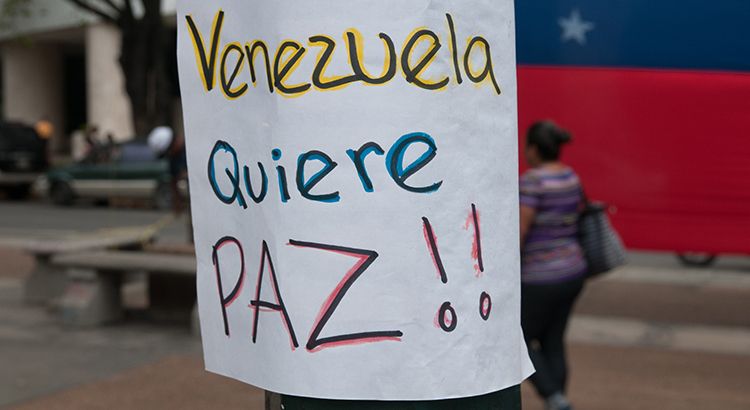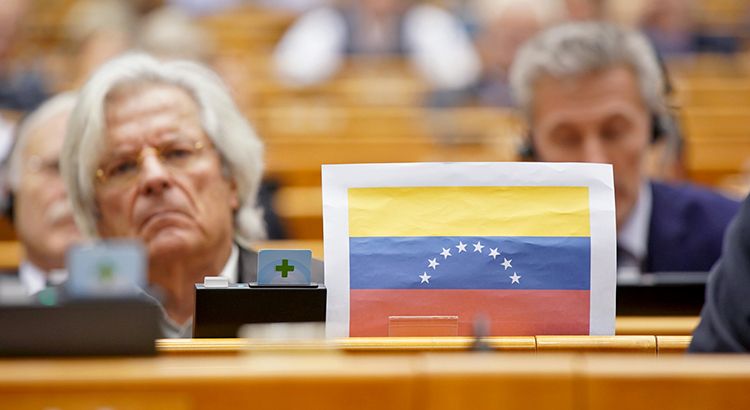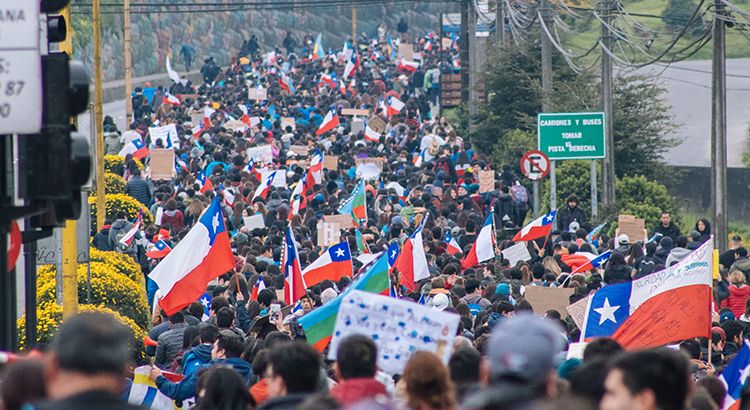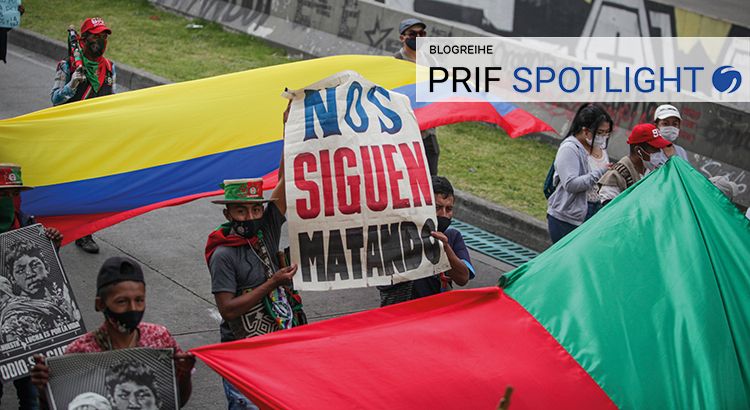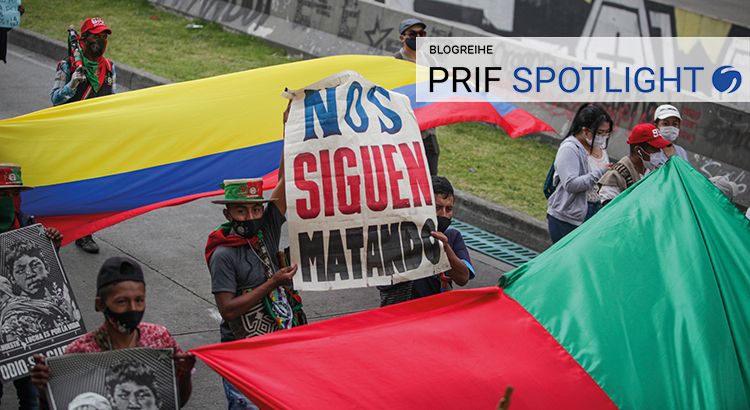Author: Jonas Wolff
Prof. Dr. Jonas Wolff ist Vorstandsmitglied und Leiter des Programmbereichs „Innerstaatliche Konflikte“ am PRIF und Professor für Politikwissenschaft an der Goethe-Universität Frankfurt. Seine Forschungsschwerpunkte sind Demokratie und politischer Wandel, soziale Proteste und Konfliktdynamiken sowie außen- und entwicklungspolitische Fragen. Sein regionaler Schwerpunkt ist Lateinamerika. // Prof. Dr Jonas Wolff is Member of the Executive Board and Head of the Research Department “Intrastate Conflict” at PRIF and professor of political science at the Goethe-University Frankfurt. His research focuses on democracy and political change, social protests and conflict dynamics, and foreign and development policy issues. His regional focus is Latin America.
The EU’s emerging response to foreign interference, as it is currently debated in the EU Parliament, contains striking similarities to arguments put forth by some governments around the world seeking to justify harsh restrictions on foreign funding and “foreign agents.” This risks producing serious ramifications for civic spaces and international civil society support—both within and beyond the EU.
The Reconstitution of Liberal Hegemony in Comparative Regime Research: V-Dem’s Discursive Turn from the Contestation to the Decontestation of Democracy
Within just a few years, the Varieties of Democracy (V-Dem) project has experienced a remarkable rise to both academic and political prominence. As I show in a paper that was just published open access with Contemporary Politics, this rise has been accompanied by a notable discursive shift: Having started as a project aimed at taking seriously the essential conceptual contestability of democracy, in recent years V-Dem has adopted an increasingly narrow and taken-for-granted focus on liberal democracy. This turn from the contestation to the decontestation of democracy, which responds to the perception of serious threats to democracy in general and liberal norms in particular, is not only remarkable in and of itself. In the face of the current crisis of democracy, it is also deeply problematic as it contributes to downplaying the inherent limitations of liberal democracy. The following contribution presents and summarizes the main arguments from the paper.
Gemeinsam gegen die bösen Autokratien? Zu den Fallstricken demokratischer Allianzbildung als Pfeiler einer zukünftigen deutschen Sicherheitsstrategie
In Reaktion auf den Aufstieg Chinas und das zunehmend selbstbewusste Auftreten autoritär verfasster Staaten hat sich auch im deutschen außenpolitischen Diskurs das Bild eines neuen „Systemwettbewerbs“ verfestigt. Die Vorstellung, dass sich die Demokratien dieser Welt im Angesicht bedrohlicher Autokratien zusammenschließen müssen, hat durch den russischen Angriffskrieg auf die Ukraine weiter Nahrung erhalten. Die Bundesregierung wäre allerdings schlecht beraten, diese Idee einer Zweiteilung der Welt in gute Demokratien und schlechte Autokratien zur Grundlage ihrer Nationalen Sicherheitsstrategie zu machen.
Deutsche Demokratieförderpolitik. Ampelkoalition auf Kurswechsel?
Nimmt man die programmatische Rhetorik des Koalitionsvertrags ernst, deutet sich unter der neuen Bundesregierung eine Umorientierung der internationalen Demokratieförderpolitik Deutschlands an: vom traditionellen deutschen Ansatz, der durch Entwicklungsorientierung und das Selbstverständnis einer Zivilmacht geprägt war, in Richtung eines explizit politischen Zugangs, der Deutschland in einem internationalen Systemwettbewerb sieht, Demokratieförderung als primär außenpolitische Aufgabe definiert und auf die Unterstützung von Demokratien und Demokraten setzt.
Deutsche Demokratieförderpolitik in einer multipolaren Welt: Parteipolitische Perspektiven vor der Bundestagswahl
Ob in Brasilien oder Indien, in den USA, Tunesien oder Ungarn – selten seit dem Ende des Kalten Kriegs schien die Demokratie rund um den Globus so gefährdet wie heute. Aber wie lässt sich der gegenwärtige globale Trend der Entdemokratisierung bremsen oder gar umdrehen? Was können demokratische Staaten wie Deutschland tun, um demokratische Institutionen und Prozesse weltweit zu schützen und zu fördern? Und wie sollte sich die zukünftige Bundesregierung gegenüber der US-Initiative für ein neues Bündnis der Demokratien einerseits, dem wachsenden Einfluss des autokratischen Chinas auf der anderen Seite verhalten? Dieser Blogbeitrag vergleicht die Positionen der in Fraktionsstärke im Bundestag vertretenen Parteien.
The EU, Venezuela, and democracy promotion: A rejoinder to Elliott Abrams’ comments
In his blog post “The EU and Venezuela: More Bad Advice”, published on the website of the Council on Foreign Relations, Elliott Abrams critically reviews my thoughts on “A New Framework for Dealing with Venezuela: From Democracy to Conflict Resolution”. In this piece, I argued that the EU should shift from what I call the “democracy framework” to a “framework of peace mediation and conflict resolution”. Abrams’ comments give me the opportunity to clarify some issues and tease out key differences between his approach and the one I am arguing for.
A New Framework for Dealing with Venezuela: From Democracy to Conflict Resolution
Venezuela is mired in a prolonged, multifaceted crisis, to which no solutions are in sight. In the wake of the country’s December 2020 parliamentary election, the EU needs to rethink some of the basic premises of its policy toward Venezuela. Instead of quarreling about which domestic actors and political institutions should be recognized as democratic, the EU should approach the country through a lens of conflict resolution. While a democracy-based framework divides the EU and a broad range of other external actors, a framework focused on conflict resolution may increase the chances of a more coordinated international response. That approach may be more likely to lead—eventually and indirectly—to some kind of inclusive political settlement in Venezuela.
One Year Later: The Legacy of Latin America’s 2019 Mass Protests
Between October and December 2019, mass protests swept Bolivia, Chile, Colombia and Ecuador. A year later, the legacies of these episodes of contention look very different. While in Chile protests enforced the initiation of a constitutional reform process that continues on track, recent elections in Bolivia reversed last year’s political about-face. In Ecuador and Colombia, the 2019 mass protests did not initiate comparable policy changes to begin with – but this doesn’t mean they had no lasting effects.
The Political Logic of Violence. The Assassination of Social Leaders in the Context of Authoritarian Local Orders in Colombia
Ever since the conclusion of the peace deal between the Colombian government and FARC guerrilla in late 2016, the number of social leaders murdered has risen sharply – something that even the latest developments surrounding the Covid-19 pandemic have had little bearing on. These acts of violence are frequently attributed to the presence of armed non-state actors and their fight for control over illegal economies. And yet, the situation has an unmistakably political side to it, reflecting the very modus operandi of local authoritarian orders in Colombia. For counterstrategies to be developed, it is crucial to acknowledge the political logic behind the violence.
Die politische Logik der Gewalt. Zur Ermordung sozialer Aktivist*innen im Kontext autoritärer lokaler Ordnungen in Kolumbien
Seit dem Abschluss des Friedensabkommens zwischen der kolumbianischen Regierung und der FARC-Guerrilla Ende 2016 sind die Morde an sozialen Aktivist*innen deutlich angestiegen. Daran hat sich auch unter den Bedingungen der COVID-19-Pandemie nichts geändert. Häufig wird diese Gewalt allein auf die Präsenz bewaffneter, nichtstaatlicher Akteure und deren Kampf um die Kontrolle illegaler Ökonomien zurückgeführt. Sie hat aber zugleich eine dezidiert politische Seite und spiegelt konkret die Funktionsweise lokaler autoritärer Ordnungen in Kolumbien. Diese politische Logik anzuerkennen, ist wichtig, um Gegenstrategien zu entwickeln.

